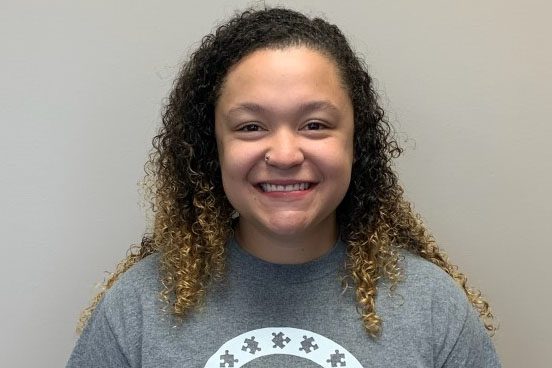Ask The Expert: Speech and Language Therapist, Kaitlyn Harrold
What is speech-language therapy?
In the school setting, speech-language pathologists (SLPs) design therapy programs in order to meet the individual needs of students to increase functional and effective communication skills. Activities are created to teach new concepts, improve current skills, and generalize communication skills from the therapy room to school and home environments. Areas that might be targeted in therapy can include articulation, motor speech, phonology, expressive and receptive language, augmentative and alternative communication (AAC), social communication, cognition, fluency, and voice. SLPs work with other team members, such as occupational therapists, music therapists, classroom staff, and family members in order to provide the most effective services.
What activities can be completed at home to address speech and language skills?
Books are a great tool to use to encourage speech and language development. Books provide a natural context for learning and evidence shows that interactive reading experiences help children develop the foundation to support academic achievement, oral and written communication skills, and social development. Books are also efficient (a single book can target multiple skills), convenient (portable and low cost or no cost by utilizing libraries), and fun. Books can even be found online, on YouTube, and on apps for phones, tablets, and iPads.
Activities that use book reading can target almost all areas of speech and language. To start, choose any book that is appropriate for your child. The book can be age-appropriate, include topics of interest to the child, or introduce new concepts. Below are different areas of speech and language that can be addressed and some ideas on what you can do during book reading to target these areas. Children using AAC can use their devices or designated form of communication to participate in reading books.
This website provides a list of suggested books by age or skill level along with ideas on how to target speech and language skills for each specific book listed.



